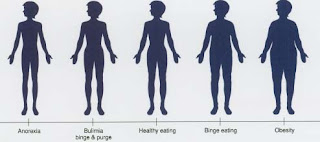A little about leg cramps
I have had leg cramps my whole life and there just isn't a whole lot that I can do to prevent them. No medications have worked so far but eating at least one banana a day sure helps lower the frequency of them. Source Here.
What are muscle cramps?
A muscle cramp is a strong, painful contraction or tightening of a muscle that comes on suddenly and lasts from a few seconds to several minutes. It often occurs in the legs. A muscle cramp is also called a charley horse.
Nighttime leg cramps are usually sudden spasms, or tightening, of muscles in the calf. The muscle cramps can sometimes happen in the thigh or the foot. They often occur just as you are falling asleep or waking up.
What causes muscle cramps?
The cause of muscle cramps isn't always known. Muscle cramps may be brought on by many conditions or activities, such as:
- Exercising, injury, or overuse of muscles. (One of my causes)
- Pregnancy. Cramps may occur because of decreased amounts of minerals, such as calcium and magnesium, especially in the later months of pregnancy.
- Exposure to cold temperatures, especially to cold water. (Monday night was the first truly cold night of our fall)
- Other medical conditions, such as blood flow problems (peripheral arterial disease), kidney disease, thyroid disease, and multiple sclerosis.
- Standing on a hard surface for a long time, sitting for a long time, or putting your legs in awkward positions while you sleep. (Sitting for 12 hours straight might be a cause... Is one of my causes)
- Not having enough potassium, calcium, and other minerals in your blood. (One of my causes, that's why I eat a banana every day)
- Being dehydrated, which means that your body has lost too much fluid.(One of my causes during long runs this happens)
- Taking certain medicines, such as antipsychotics, birth control pills,diuretics, statins, and steroids.
How can you stop a muscle cramp when it happens?
You may need to try several different ways to stop a muscle cramp before you find what works best for you. Here are some things you can try:
- Stretch and massage the muscle. (Best way for me is to have someone help me with massaging the cramp out, none of the others work for me but they might work for you!)
- Take a warm shower or bath to relax the muscle. A heating pad placed on the muscle can also help.
- Try using an ice or cold pack. Always keep a cloth between your skin and the ice pack.
- Take an over-the-counter pain medicine, such as acetaminophen (Tylenol), ibuprofen (Advil, Motrin), or naproxen (Aleve). Be safe with medicines. Read and follow all instructions on the label.
- If your doctor prescribes medicines for muscle cramps, take them exactly as prescribed. Call your doctor if you have any problems with your medicine.
- Drink plenty of fluids. Sports drinks, such as Gatorade, will often help leg cramps.
Here are some things you can try for a leg cramp:
- Walk around, or jiggle your leg. (One of the best ways for me is to get my leg straight, if I can, but usually they are so strong that I can't unless someone is there to help me.)
- Stretch your calf muscles. You can do this stretch while you sit or stand:
- While sitting, straighten your leg and flex your foot up toward your knee. It may help to place a rolled towel under the ball of your foot and, while holding the towel at both ends, gently pull the towel toward you while keeping your knee straight.
- While standing about 2 ft (0.6 m) from a wall, lean forward against the wall. Keep the knee of the affected leg straight and the heel on the ground. Do this while you bend the knee of the other leg. See a picture of how to do this calf stretch
.
I find that stretching for several minutes after a workout will help reduce the risk of leg cramps as well. It seems silly to spend another 10-20 minutes stretching but some times that is what it takes. I have tried many vitamin supplements and even over the counter meds but nothing has worked better than eating bananas on the regular and stretching consistently. I will admit I have slacked a bit on both the last two weeks.



Comments
Post a Comment